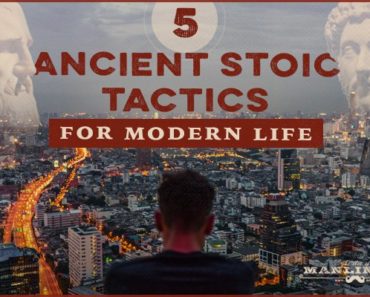—
It’s Saturday night in the luxury suite of a fancy hotel in an important city. A powerful man stands alone in the room, adjusting his watch in the mirror. He finds his phone and scrolls through his contacts. He arrives at the name of a young woman on the first steps of her professional path. He’s positioned to advance her career and he knows it. On the fourth ring, she answers.
“What a surprise to hear from you,” she says.
“Can you meet me at my hotel?” he responds.
“Sure . . . ok,” she says with mild apprehension. “What time?”
“Now.”
“O.K. Let me get myself together and I’ll meet you there. Can I bring you anything?”
“No.”
“What’s your room number – er, where should I meet you?”
“I’ll meet you downstairs.”
They meet in the lobby. He leads her to a table in a corner. She sits down, timidly. It’s unnerving to find yourself face to face with someone, a man, who can change your career—your life—if he feels like it. He speaks. “If you’re comfortable sharing, I would love to know what’s been happening with you.” His request takes her by surprise. After pausing to assess his sincerity, she starts talking. And he starts listening. Attentively. She keeps talking. He keeps listening attentively.
She reveals that she went through a grueling stretch a few months prior, after she lost someone important to her.
“I’m sorry,” he says. “I can’t imagine how difficult that was for you. How are you holding up?”
“I’m o.k. I wasn’t for a while, but I’ve been doing better lately.”
“I’m happy to hear that. You’re a strong woman. Your strength is going to serve you well in this business. It’s hard to manage the ups and downs we have to deal with every day in this industry.”
“Thank you. That means a lot to me.”
“You’ve come a long way in a short amount of time. Seems to me the sky’s the limit for you. I don’t think you need my help to get there. But I’m going to do everything I can to help you.
“Thank you.”
“Thank you for sharing your story and time with me.”
“Thank you for listening to me—and for your compassion and encouragement. You’ve made me feel like I matter in a way I haven’t felt in awhile. I can see my next steps more clearly now and I’m kind of excited to take them.”
They stand up. She exits the lobby and leaves the hotel. He walks to the elevator alone. Each smiles.
***
MEN I KNOW
I consider myself a regular guy. I grew up with two brothers, played sports, and surrounded myself with male friends of all shapes and sizes — from New England overachievers and Harlem musicians to Louisiana attorneys and San Francisco venture capitalists. In four decades around all kinds of men, I’ve never seen or heard of anything like that scene playing out.
I’ve never heard of an influential man, harboring no ulterior motives, to establish a connection with a less-established woman just to provide emotional support.
Perhaps these altruistic gestures happen, but I haven’t heard about them. If men are providing this kind of support, they’re not calling attention to it. The women whom men discuss with other men usually aren’t objects of compassion, they’re just objects.
Last year I attended an expensive wedding. There were twelve groomsmen: successful professionals with graduate degrees, peer-reviewed papers, and sharp opinions about foreign affairs. But the center of attention was the guy who credibly claimed to have slept with over 500 women. Eleven “enlightened” men spent a weekend making wide-eyed inquires of a man who treated women as numbers on a scorecard, and they considered it time well spent.
Until now, I’ve dismissed this behavior as “men being men.” But lately, I’ve been questioning whether this behavior is inevitable and harmless. For the last two years, I’ve been part of an initiative that aims to (1) change the way people think about emotional support, and (2) provide that support to others. It now occurs to me, late in the game, that influence is one of the biggest wild cards that exists among people. In the wrong hands, it is a weapon that destroys dignity. In the right hands, it is a force that can alter the trajectory of people who are healing, searching, and aspiring.
Imagine how different the world would look if we reconceived influence, not as a tool of subjugation but as a force multiplier for emotional support.
RECONCEIVING INFLUENCE
For thousands of years, misogynist behavior masquerading as a law of nature has flourished just beneath the surface of our social consciousness. Our national reckoning with sexual predators is changing all of that.
This reckoning is exacting its toll one firing at a time, as institutions afraid of losing votes, ratings, and profits cast off an elite caste of men that operated with no ethical or legal restraints on their impulses. To the contrary, these impulses were reinforced by a view of influence subscribed to by powerful men, and imposed on everyone else: influence is the means of processing power into pleasure. This unspoken belief underwrote a cultural norm where men reward each other—by locker room accolades, fist bumping, or silent looks of approval—for achieving these conquests. The more victims underfoot, the more man.
The firings should continue: We can’t live in a world where predators are immune from consequences. For now, this may be the best we can do.
Looking ahead, though, there is a loftier state of affairs to which we can aspire. We can commit ourselves to a future where men view their influence, not as a source of temptation but as an engine for empowering the less established people around them and, through this example, creating a more supportive society. This vision—where our headlines are filled by human interest stories of powerful men supporting others—may not inspire Hollywood scripts, but this social transformation would be among the most enduring stories ever told.
FROM COERCION TO EMPOWERMENT
Wealth, power, and strength have traditionally been considered the three most direct paths to acquiring the type of influence that translate into importance and fame.
Magazine covers recycle these themes from week to week. Fortune, Fast Company, and Inc. lionize men who have accumulated vast sums of money. Time, the New Yorker and The Economist celebrate figures with vast political power. Men’s Fitness, Men’s Health, and Sports Illustrated pay homage to physical skill and brute strength.
This concept of influence is narrow and damaging. Influence isn’t just the capacity to compel people to act in the influencer’s self-interest; it’s any force that flows from one person with the potential to change another. When this force is shaped by selfish motives and the desire to actualize them, the immediate result is predation and the long-term consequence is a wasted opportunity to improve the human condition.
If there was ever a moment for men to make a wholesale change to their personal creeds, this is it. I’ll volunteer this one: Let’s do everything we can to support any person with whom we interact. If we channel this motive through the techniques of undivided attention, compassion, and encouragement (the three tools of emotional support), we can deliver an impact that resonates far more deeply than money, political power or physical strength.
Undivided attention is our time and focus. Time is the currency of life. When we give another person our time, we literally give them a piece of our life. Our focus tells another person that, in that moment, there is no one (and nothing) more important than them. The combination of our time and focus is the most powerful way of demonstrating to another person that we care about them. For the person receiving our undivided attention, it is the most convincing evidence that they matter.
When people don’t feel like they matter, they stop taking care of themselves and others. Unhealthy behaviors escalate in their familiar depressing forms: abusive social media commentary, virulent xenophobia, and polarizing politics, to name a few.
When people feel like they matter, they gain awareness of their potential and the courage to realize it. Their relationships are more likely to flourish. The fiber of their personal networks strengthens through their projected energy. A small dose of undivided attention can positively change the arc of a person’s life, and indirectly impact the entire constellation of people in that arc.
Compassion heals wounds. Men cause a lot of wounds but we can heal them, too. Simply saying the words “I’m sorry”—not to apologize for another’s source of pain, but to transparently internalize a person’s sadness—reflects a true appreciation for another person’s difficult circumstances and legitimizes their natural, justified emotions. When compassion is used as a tool of understanding, and not as a pretext to abuse someone, it is a profound means of providing support.
Encouragement is positive reinforcement that anticipates some future activity or event. The best encouragement frames a person’s specific strengths and positive attributes in a way that makes their future challenges feel less daunting. This breaks down into two distinct, equally important acts. The first, reminding someone why they are a good person, is critical in an environment where failures attract more attention than accomplishments, degrading our confidence and motivation. Encouragement also logically connects a person’s strengths and attributes with a plan of action that has a relatively high chance of success tied to the person’s unique gifts, thus providing the conviction and belief to engage optimistically with the future.
So, men have a choice. We’ve witnessed the crumbled legacies left by influence used for immediate gratification at the expense other people’s dignity. But influence can be deployed in a very different way: as renewable energy that can set in motion a powerful chain of events that empowers others, strengthens communities, and leaves a legacy that positively reverberates through generations.
MASCULATED
The man rides the elevator back to his luxury suite. Once again, he scrolls through his contacts, this time for one of his friends, a man holding a similarly important position in their industry.
“I just met an eager young woman at the beginning of her career. All I did was listen to her story, comfort her and encourage her, but I think it really made a difference. That’s how I’m going to use my influence from here on out.”
His friend replies, “Me too.”
—
If you believe in the work we are doing here at The Good Men Project, please join like-minded individuals in The Good Men Project Premium Community.
◊ ◊
◊
◊ ◊
◊
Get the best stories from The Good Men Project delivered straight to your inbox, here.
◊ ◊
◊
◊ ◊
◊
Sign up for our Writing Prompts email to receive writing inspiration in your inbox twice per week.
 ◊
◊
We have pioneered the largest worldwide conversation about what it means to be a good man in the 21st century. Your support of our work is inspiring and invaluable.
The Good Men Project is an Amazon.com affiliate. If you shop via THIS LINK, we will get a small commission and you will be supporting our Mission while still getting the quality products you would have purchased, anyway! Thank you for your continued support!
—
Photo credit: Getty Images
The post A Man’s Take on Redefining Masculinity in the #MeToo Era appeared first on The Good Men Project.
(via The Good Men Project)







